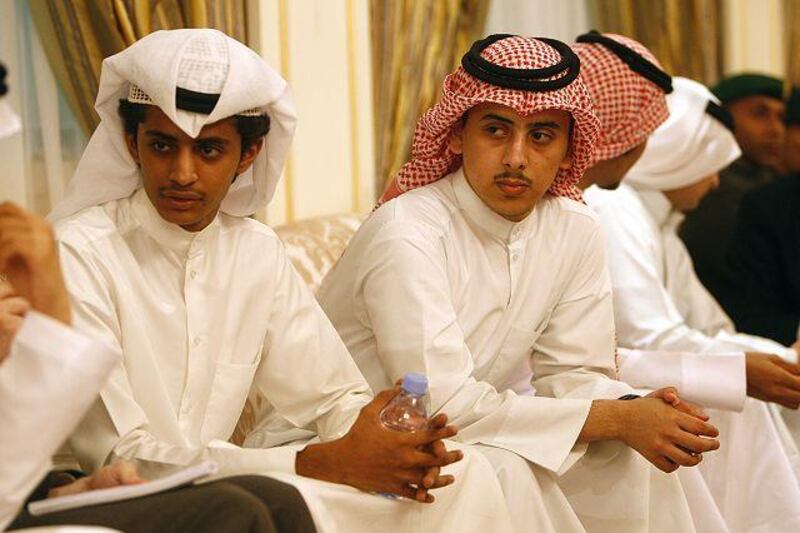ABU DHABI // When Zayed University was founded, its 1,131 students had one thing in common - they were all Emirati women. Last year, the university accepted men for the first time and today among its 5,000 students are 200 men, who are taught on a separate male campus in the capital.
Now Zayed University is taking its drive for diversity a step further, welcoming the first non-Emiratis to its student body. Fifteen Kuwaitis have arrived in the UAE on scholarships from their government in a move that officials believe will make university life more interesting for Emirati students. Zayed plans to take students from other GCC countries and, possibly, the United States and Europe.
Among the Kuwaitis is Hamood al Anzi, 18, who is taking a degree in media studies. "I will have new experiences here," he said. "It will be useful in the future in my career because I will have many friends here. "In Kuwait we say if you travel and study outside you become a real man because you will know how to do everything like cooking and washing." Dr Daniel Johnson, the provost, said the international students would "bring some diversity that will add to the educational experience of both the national students and international students". The university, which which was founded in 1998 and has campuses in Abu Dhabi and Dubai, has received "very strong expressions of interest" from ministries of higher education in other GCC countries keen to send students.
"The opportunity to study in the UAE is an attractive one, so that accounts for the interest," Dr Johnson said. "I'd like to think it's also a result of the quality of education that the students will receive and the experience they will have here." Over the next five to seven years, the international student contingent could grow to between 10 and 15 per cent of the total, Dr Johnson said. "We think there will be some interest from the US, from Europe, from Australia," he added.
"There's potential for a small number of students from the US, but we see that a few years out." Overseas students will either be funded by their own government or from their own resources. Officials said fees covered only the costs of teaching and the initiative was not being done to subsidise other university activities. Abdullah al Adwani, 19, a Kuwaiti studying for a degree in international studies, said he hoped to improve his language skills at the university, which, like other federal institutions, uses English as the language of instruction.
"In many countries of the world you can work [if you have a degree from the university] because ZU is an international university," he said. Of the Kuwaitis, 14 are men and based in Abu Dhabi. The one woman is in Dubai. Occasional individual non-Emirati students have been admitted in the past. The recruitment of overseas students has been welcomed by Emirati students. Yousif al Marzouqi, 22, president of the student council at the university's male campus in Abu Dhabi, said it would allow "sharing cultures, sharing ideas". However, he said the Kuwaiti students had much in common with those from the UAE, given the cultural and religious similarities.
"We're from the same area, the same territory - the desert," he said. "It's like a family from the same neighbourhood." Another federal university, UAE University in Al Ain, has always admitted some students from other Gulf countries. They make up about five per cent of the institution's 14,000 student population. They are funded by the UAE through reciprocal agreements with their home countries. Very small numbers of students from non-GCC countries are also admitted.
In previous years, many qualified Emirati students were not awarded places at federal universities because of a lack of funds, although for the past two academic years additional financing has been provided and all have been offered places. dbardsley@thenational.ae







